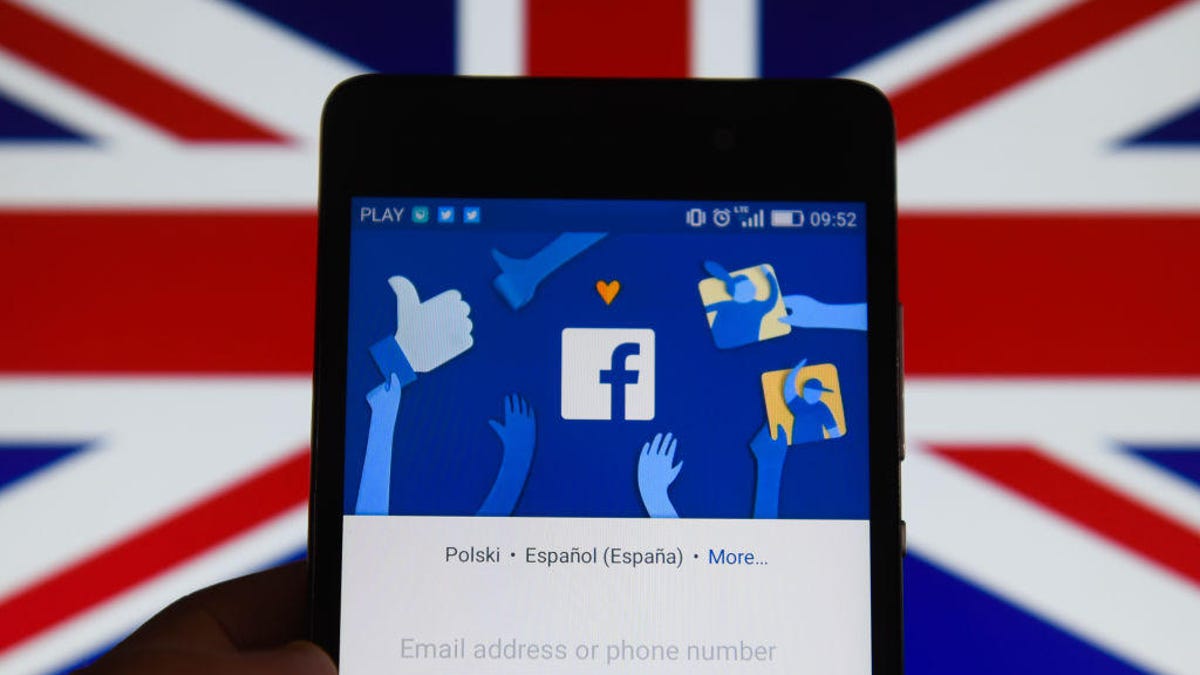Facebook brings its political ad rules to the UK
It'll disclose who pays for them, and they'll need to prove their identity and location.

Facebook is making political ads more transparent in the UK.
Facebook on Tuesday said its political ad transparency rules are expanding to the UK.
That means British political ads will note who paid for them, and those doing the paying will have proven their identity and location to Facebook -- by providing a passport, driver's license or residence permit that'll be checked by a third-party organization, according to the BBC.
The change follows similar rules being rolled out in the US in May, and the social network's promise to investigate the spread of Russian misinformation tied to the 2016 Brexit vote.
In addition to these rules, Facebook is expanding its election ad database tools -- previously available in the US and Brazil -- to the UK, showing all of a given advertiser's previous ads, the amount spent and the demographics the ads targeted.
You can report unlabeled political content by tapping the three dots in the ad's top right-hand corner. Facebook will then review it, take it down and add it to the database.
"We're up against smart and well-funded adversaries who change their tactics as we spot abuse," wrote Richard Allan, Facebook's vice president of global public policy, and Rob Leathern, its director of product management, in a blog post.
"But we believe that this higher level of transparency is good for democracy and is good for the electoral process."
In the US, Facebook is battling voter manipulation with a reported ban on misinformation about voting leading up to and during November's midterm elections. Last week it pulled down more than 800 pages and accounts for violating its rules against spam and "inauthentic behavior."
US midterm elections are almost here: Hackers, trolls and the fight over your vote.
'The brain of the internet': Inside Facebook's massive center storing your personal information.

